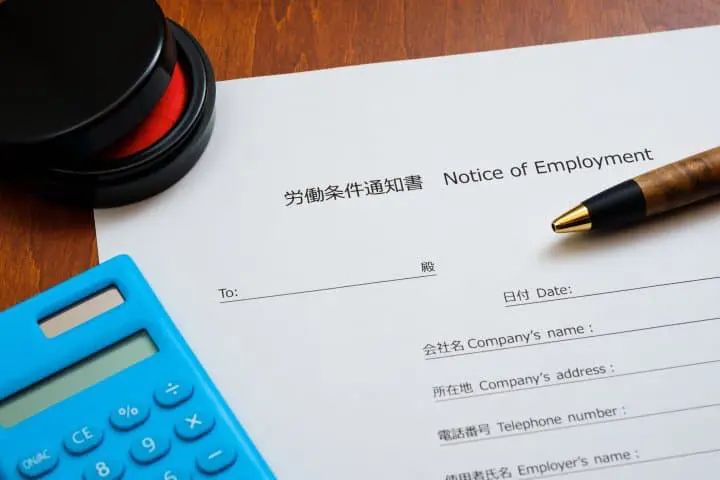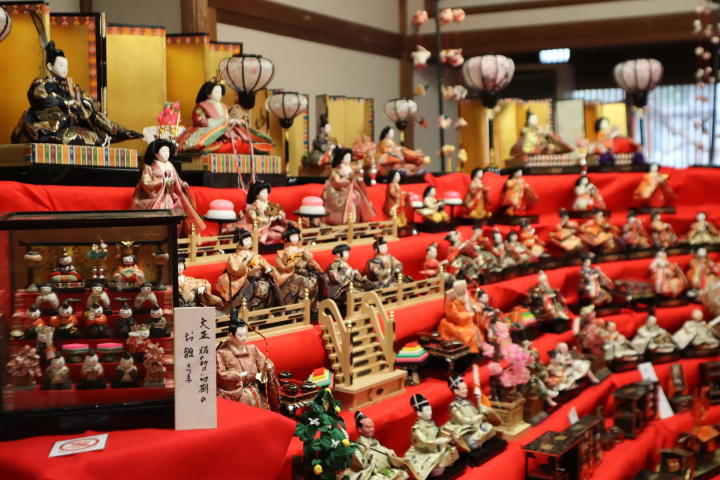Guide To Changing Jobs In Japan: Visa Procedures, Timing, And Tips

Switching jobs in Japan can be an especially stressful experience, but it is possible with planning. This article covers necessary work visa procedures, how to look for a new job while still employed, when to switch, and other advice. It's time to start a new chapter of your professional life!
How to Successfully Change Jobs in Japan - Procedures and Advice

Photo by Pixta
Most people come to a point when they want a change in their professional life. In Japan as a foreigner, switching jobs can seem daunting, from securing a new employer to keeping track of the paperwork for your work visa, to how to time your change. However, with preparation, beginning a new chapter in your career is possible.
This article contains essential information on work visa procedures, how and when to find new employment, and how to appropriately time your job change as an international resident of Japan.
Table of Contents
- 1. Necessary Work Visa Procedures
- 2. How to Search for a New Job
- 3. Suggested Timeline for Your Job Search
- 4. How to Start Your New Job
- 5. Things to Know About Switching Careers in Japan
1. Necessary Work Visa Procedures in Japan

Old and new residence cards.
When thinking about changing jobs as a foreigner in Japan, checking your residence status is vital and directly tied to your ability to stay in the country if you hold a work visa.
Work visas in Japan are available in lengths of one, three, or five years, and holders of these visas are allowed to change jobs freely within their permitted period of stay. Below is a step-by-step explanation of what to do when considering changing jobs.
What Happens to my Work Visa when I Change Jobs?
Your work visa remains the same and holds the same expiry date as it did before you switched employers. Your work visa does not change when you switch jobs or employers as long as your work is in a similar field as your previous employment.
If your type of job completely changes, you will have to submit extra paperwork to Japan's Immigration Bureau for a change of residency status. For example, if you were working as an English teacher and are now an engineer, your new job likely falls outside the residence status you have on your foreign residence card, so you have to make the appropriate status change.
During your job search and the hiring process at your new employer, make sure your new employer is aware of your current work visa situation and how to correct it if necessary.
What Paperwork do I have to Submit when I Change Jobs?
You must submit paperwork via mail to Japan's Immigration Bureau within 14 days of your employment change. Your new employer will help you apply and send the information needed, but be proactive and consult with your new HR department quickly.
If you quit your job before you secure new employment, you will have to submit notices to the Immigration Bureau two times: the first when you resign, and the second when you acquire a new job. Unemployed work visa holders have three months to obtain employment. Those who do not do this risk their residency status in Japan being revoked.
Can I Change Jobs in Japan with a Non-Work Visa?
Provided that you have permission to work in Japan, you can still change jobs freely if you hold a visa that differs from a work visa. For example, if you are a permanent resident of Japan, on a spousal or child visa, or have long-term residency status, you are not bound to a work visa and have more freedom when changing jobs. You do not have to report job changes to the Immigration Bureau.
2. How to Search for a New Job in Japan

Photo by Pixta
After confirming your work visa requirements and the necessary related procedures, it's time to begin looking for a new opportunity in Japan. Keep in mind that searching while you are still working will take longer and be more difficult.
Due to this, use a variety of methods to look for the next potential opportunity: check job listing sites online, ask around your local communities and networks, and get assistance from a recruiter. Below are suggested websites and services to help you with switching jobs and companies successfully.
| Website | Language | Features |
| For-A career | Japanese | Recruiting service that boasts 97% employment rate |
| En Tenshoku | Japanese | Japan's largest and highly ranked job sites |
| Doda | Japanese | Similar to above, one of Japan's largest and highly ranked job sites |
| GaijinPot | English (some listings in Japanese) | Teaching and unique positions available |
| Indeed | English and Japanese | Directly apply to thousands of jobs |
For more websites and information on how to find jobs in Japan, see this article.
The biggest hurdle to searching for jobs is managing your time and your privacy. Remaining employed while you search for a new opportunity means less stress about finances, but you should not let your employer or coworkers know about your plans to switch. This method maintains the best possible relations at work without hurting team morale.
3. Suggested Timeline for Your Job Search

Photo by Pixta
The time it takes to find a new position and new employer in Japan depends on several factors. For example, if you are trying to go into an entirely different field or position, it will likely take longer than if you are simply switching companies.
In addition to this, due to Japan's long workdays, it will be more challenging to take time to research potential opportunities and attend interviews while employed fulltime. You may not be able to take time off of work, and you may still be working overtime.
In general, however, allow between three to six months to change jobs in Japan. Below is one recommended timeline for approaching finding a new career.
1. One to Two Months: Self-Analysis, Resume Updating, and Job Search

Before jumping into searching online or in-person for your next opportunity, take at least a month to assess your reason for wanting to change jobs, the skills you have, and your career goals. You should also decide around when you want to leave your current job and begin your new one. After doing this, it's time to update your English resume and your Japanese rirekisho and shokumu keirekisho.
After reviewing your skills and where you want to go in the future, begin your search. Use the websites listed above to look for new opportunities, and you should also enlist the help of a recruiter, who will find listings fitting to your skillset and aspirations. Narrow down your search in terms of your desired role or position, especially when changing jobs while employed, to save yourself time and effort.
2. One to Three Months: Interviewing at Companies

Photo by Pixta
Interviewing for a new job when you have already had professional experience requires as much practice and preparation as it did to land your first job. If you are still working, request interview times before or after you finish work. Most recruiting departments at companies looking for experienced workers will be glad to accommodate you. Online or telephone interviews are also an option.
This part of the process will likely take around one to three months, depending on how often you schedule interviews and the companies you are applying to.
3. One Month: Accepting an Offer and Starting
After one to three or four rounds of interviews and, in some cases, skills or personality tests, if you've passed, you will receive an offer letter from your potential employer. Please make sure you receive your offer in writing, with the signature of the hiring company; verbal offers can be and are revoked easily. Before accepting, review the terms carefully, ask questions, and feel free to negotiate on certain items if you want to, such as salary, vacation days, and your start date.
After accepting the offer, you will receive your employment contract, which will have all the finalized details of your new job.
The total time elapsed since the beginning of your journey at this point will be anywhere from three to six months.
4. How to Start Your New Job

Photo by Pixta
Once you've received and accepted your desired career offer, it's time to tell your current workplace that you are leaving. Legally, all employees must give their employer at least two weeks in advance when quitting. However, this time length may be longer depending on your workplace: some require as much as one to two months advance notice.

Photo by Pixta
How do you tell your employer you are leaving? Some offices utilize the hand-written resignation notice, called a "taishoku todoke" (shown above). Before deciding your new start date and telling your boss, check your employment contract to be sure of how you can quit on good terms.
After you've conveyed the news, be sure to take any remaining, unused vacation days in between your final days and starting your new job. It is vital to have a break and chance to prepare for this significant life change.
Notify the Immigration Bureau
Congratulations on successfully landing a new job and leaving your previous employer! Before you become too busy, make sure to mail the appropriate documents to the Immigration Bureau and take care of any procedures involving your residence status and visa.
This process involves paperwork with your new employer, so be sure to ask your human resources department.
Things to Know About Switching Careers in Japan

Photo by Pixta
Japan has a unique culture surrounding work and changing jobs: loyalty and dedication to a company, as well as stability, are prioritized over fast-paced individual growth and fulfilling one's personal professional potential.
Although now changing, the notion of working at one company, from around age 22 until retirement, or "lifetime employment," remains an ideal in society as the job change rate is low. In 2019, studies show that about 7.8% of those age 23-34, and 4.7% of those age 45 to 54 had a career change that year.
In contrast, reports state that 30% of workers between their early 20s and late 30s reported changing jobs within the last year in the United States.*
These low numbers and different societal values in Japan are reasons for subtlety and caution when looking for a new job. If word gets out about your planned career change too long before your last day, be prepared for awkwardness and, in the worst case, bullying, at your workplace.
Outside of your employer, people who see your resume will likely question your employment changes and their frequency. Staying at least three years at a job in Japan before switching is sometimes recommended. However, there is no correct one length of time or method to change careers or employers, and only you know when it is time to try something new.
For those who are deciding, below are some practical tips on changing jobs in Japan.
Practical Tips for Changing Jobs in Japan
- The entire job changing process will likely take between three and six months for most people.
- You will have to report your new employment status to Japan's Immigration Bureau within 14 days of your change via mail.
- Using recruiting services offered by For-A career is recommended, especially for those changing jobs, as it is harder to balance the searching while employed.
- Do not let your coworkers or bosses know about your move until you have found and secured a new opportunity.
- Plan to quit two weeks to one month after securing your new employer (check your contract), and minimize contact at your previous employer by taking unused vacation days before you leave.
*Japanese statistics from the Statistics Bureau of Japan "Labour Force Survey."
United States statistics from "How Millennials Want to Work and Live" Gallup report.
Switching Careers in Japan is Possible!
Leaving your current job for something new is a natural and necessary step of most people's professional trajectory. A new position will challenge you and grow your skills, leading to a more satisfying work-life in Japan.
Read also
Main image by Pixta
An awkward Southern California native living in Osaka. Originally came to Japan on the JET Program in Hyogo Prefecture (Kansai) after studying economics in college, and decided to try to stay.
IUC 10-month program graduate. Vegan and interested in all things Japan-related. Left-handed. Very fond of Kansai.









































![[During Your Kumano Trip] Cape Shionomisaki Tourist Tower](https://resources.matcha-jp.com/resize/720x2000/2025/11/05-249097.webp)

![[Kagoshima] Enjoy Minamisatsuma City to the Fullest! A Guide to the Scenic Beauty and Culture of Five Areas](https://resources.matcha-jp.com/resize/720x2000/2026/02/15-258755.webp)

![[Yufuin]Yufuin in 100 Minutes: Quick Access Guide](https://resources.matcha-jp.com/resize/720x2000/2026/02/15-258738.webp)